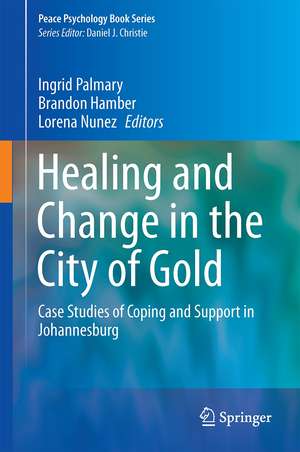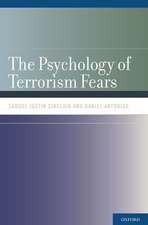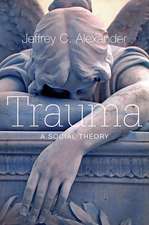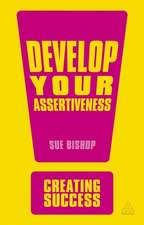Healing and Change in the City of Gold: Case Studies of Coping and Support in Johannesburg: Peace Psychology Book Series, cartea 24
Editat de Ingrid Palmary, Brandon Hamber, Lorena Núñezen Limba Engleză Hardback – 5 noi 2014
| Toate formatele și edițiile | Preț | Express |
|---|---|---|
| Paperback (1) | 382.36 lei 6-8 săpt. | |
| Springer International Publishing – 22 sep 2016 | 382.36 lei 6-8 săpt. | |
| Hardback (1) | 389.70 lei 6-8 săpt. | |
| Springer International Publishing – 5 noi 2014 | 389.70 lei 6-8 săpt. |
Din seria Peace Psychology Book Series
- 18%
 Preț: 779.26 lei
Preț: 779.26 lei -
 Preț: 361.05 lei
Preț: 361.05 lei - 15%
 Preț: 639.25 lei
Preț: 639.25 lei - 18%
 Preț: 788.54 lei
Preț: 788.54 lei - 15%
 Preț: 699.28 lei
Preț: 699.28 lei - 15%
 Preț: 646.62 lei
Preț: 646.62 lei - 18%
 Preț: 1690.13 lei
Preț: 1690.13 lei - 15%
 Preț: 645.28 lei
Preț: 645.28 lei - 24%
 Preț: 1044.84 lei
Preț: 1044.84 lei - 18%
 Preț: 945.14 lei
Preț: 945.14 lei - 15%
 Preț: 649.54 lei
Preț: 649.54 lei -
 Preț: 386.39 lei
Preț: 386.39 lei - 15%
 Preț: 697.82 lei
Preț: 697.82 lei - 15%
 Preț: 591.14 lei
Preț: 591.14 lei - 18%
 Preț: 1222.94 lei
Preț: 1222.94 lei - 15%
 Preț: 644.82 lei
Preț: 644.82 lei - 15%
 Preț: 649.22 lei
Preț: 649.22 lei - 15%
 Preț: 697.65 lei
Preț: 697.65 lei -
 Preț: 388.72 lei
Preț: 388.72 lei - 15%
 Preț: 647.08 lei
Preț: 647.08 lei - 24%
 Preț: 967.02 lei
Preț: 967.02 lei - 15%
 Preț: 638.89 lei
Preț: 638.89 lei - 15%
 Preț: 650.37 lei
Preț: 650.37 lei - 18%
 Preț: 733.15 lei
Preț: 733.15 lei -
 Preț: 398.74 lei
Preț: 398.74 lei - 15%
 Preț: 644.30 lei
Preț: 644.30 lei - 18%
 Preț: 1116.57 lei
Preț: 1116.57 lei -
 Preț: 365.05 lei
Preț: 365.05 lei - 15%
 Preț: 643.99 lei
Preț: 643.99 lei - 18%
 Preț: 1116.26 lei
Preț: 1116.26 lei - 18%
 Preț: 1381.26 lei
Preț: 1381.26 lei - 18%
 Preț: 1595.75 lei
Preț: 1595.75 lei - 18%
 Preț: 779.89 lei
Preț: 779.89 lei
Preț: 389.70 lei
Nou
Puncte Express: 585
Preț estimativ în valută:
74.58€ • 77.76$ • 61.98£
74.58€ • 77.76$ • 61.98£
Carte tipărită la comandă
Livrare economică 20 martie-03 aprilie
Preluare comenzi: 021 569.72.76
Specificații
ISBN-13: 9783319087672
ISBN-10: 3319087673
Pagini: 187
Ilustrații: VIII, 187 p. 2 illus. in color.
Dimensiuni: 155 x 235 x 15 mm
Greutate: 0.45 kg
Ediția:2015
Editura: Springer International Publishing
Colecția Springer
Seria Peace Psychology Book Series
Locul publicării:Cham, Switzerland
ISBN-10: 3319087673
Pagini: 187
Ilustrații: VIII, 187 p. 2 illus. in color.
Dimensiuni: 155 x 235 x 15 mm
Greutate: 0.45 kg
Ediția:2015
Editura: Springer International Publishing
Colecția Springer
Seria Peace Psychology Book Series
Locul publicării:Cham, Switzerland
Public țintă
ResearchCuprins
Chapter 1: Case studies of precarious life in Johannesburg.- Chapter 2: The Suitcase Project: Working with unaccompanied child refugees in new ways.- Chapter 3: Shaping New Spaces: An alternative approach to healing in current “shelter” interventions for vulnerable women in Johannesburg.- Chapter 4.Violence and Memory in Breaking the Silence of Gukurahundi: A case study of the ZAM in Johannesburg, South Africa.- Chapter 5: Between remorse and nostalgia: Haunting memories of war and the search for healing among former Zimbabwean soldiers in exile in South Africa.- Chapter 6: Violence, suffering and support: Congolese forced migrants’ experiences of psychosocial services in Johannesburg.- Chapter 7:Watching each others’ back, coping with precarity in sex work.- Chapter 8:Tormented by Umnyama: An urban cosmology of migration and misfortune in inner-city Johannesburg.- Chapter 9: Faith healing, migration and gendered conversions in Pentecostal churches in Johannesburg.- Chapter 10: Healing and deliverance in the city of gold.
Notă biografică
Ingrid Palmary is an associate professor at the in the African Centre for Migration and Society at the University of the Witwatersrand. Ingrid joined Wits in 2005 after completing her PhD (psychology) at Manchester Metropolitan University, UK. Prior to joining Wits she worked at the Centre for the Study of Violence and Reconciliation as a senior researcher. Her research has been in the field of gender, violence and displacement. Professor Brandon Hamber is Director of the International Conflict Research Institute (INCORE), an associate site of the United Nations University based at the University of Ulster. He is a Mellon Distinguished Visiting Scholar in the School of Human and Community Development at the University of the Witwatersrand in Johannesburg. He was born in South Africa and currently lives in Belfast. In South Africa he trained as a Clinical Psychologist at the University of the Witwatersrand and holds a Ph.D. from the University of Ulster. Lorena Nunez (Ph.D) is a social anthropologist with specialization in Medical Anthropology. Her earlier work experience was in the field of gender and development as researcher and activist in the women’s movement in Chile in the 1990’s.
Textul de pe ultima copertă
This volume offers radically new ways of thinking about precarious life in the city of Johannesburg. Using case studies as varied as Pentecostal and Zionist churches, brothels, shelters, political movements for change in Zimbabwe, ex-soldiers groups, counseling services and art projects, this volume grapples with the way its predominantly migrant residents navigate the opportunities, challenges, moral orders and relationships in this iconic and complex city.
Taking seriously how context shapes meaning the authors use participatory and ethnographic techniques to understand people’s everyday responses to the violence, insecurity and possibilities for change that they face in contemporary Johannesburg. Read together, the case studies give us new insights into what it means to seek support, to cope and to heal, going beyond what mental health professionals traditionally consider support mechanisms or interventions for those in distress. They develop a notion of healing that sees it as a process and an outcome that is rooted in the world-view of those who live in the city.
Throughout the chapters in this book is a sense of everyday insecurity alongside an equally strong sense of optimism, care and a striving for change. It is perhaps not surprising, then, that this book deals very centrally with themes of the struggle for progress, mobility (geographic, material and spiritual), and the sense of possibility and change associated with the City of Gold. Ultimately, the volume demonstrates that coping and healing are both a collective and individual achievement, as well as a economic, psychological, spiritual and material phenomenon shaped by context.
Taking seriously how context shapes meaning the authors use participatory and ethnographic techniques to understand people’s everyday responses to the violence, insecurity and possibilities for change that they face in contemporary Johannesburg. Read together, the case studies give us new insights into what it means to seek support, to cope and to heal, going beyond what mental health professionals traditionally consider support mechanisms or interventions for those in distress. They develop a notion of healing that sees it as a process and an outcome that is rooted in the world-view of those who live in the city.
Throughout the chapters in this book is a sense of everyday insecurity alongside an equally strong sense of optimism, care and a striving for change. It is perhaps not surprising, then, that this book deals very centrally with themes of the struggle for progress, mobility (geographic, material and spiritual), and the sense of possibility and change associated with the City of Gold. Ultimately, the volume demonstrates that coping and healing are both a collective and individual achievement, as well as a economic, psychological, spiritual and material phenomenon shaped by context.
Caracteristici
Considers how people manage and respond to their experiences of past and present violence on the individual level Covers a diverse group of people in Johannesburg including migrants, refugees, homeless people, sex workers and former soldiers from across the African continent Adds to the growing literature that critiques overly-medicalized models of trauma and healing Includes supplementary material: sn.pub/extras
















